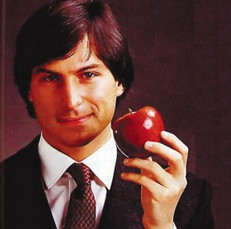“That’s right,” Jobs replied. Amelio took that response to mean that Jobs had not sold his shares, and he issued a statement saying so. But when the next SEC filing came out, it revealed that Jobs had indeed sold the shares. “Dammit, Steve, I asked you point-blank about these shares and you denied it was you.” Jobs told Amelio that he had sold in a “fit of depression” about where Apple was going and he didn’t want to admit it because he was “a little embarrassed.” When I asked him about it years later, he simply said, “I didn’t feel I needed to tell Gil.”
“沒錯。”喬布斯回答。阿梅里奧把這個答復理解為喬布斯沒有賣出他的股票,于是發表了一個聲明予以否認。可是直到證券交易委員會公布申報文件時,才發現喬布斯確實賣掉了他的股票。“該死,史蒂夫,我直接問過你,你說不是你。”喬布斯告訴阿梅里奧說,他賣股票是因為“一時對蘋果該往何處去感到沮喪”,而他不想承認是因為他“有點兒尷尬”。多年以后當我問起他時,他只是說,“我不覺得我需要通知吉爾。”
Why did Jobs mislead Amelio about selling the shares? One reason is simple: Jobs sometimes avoided the truth. Helmut Sonnenfeldt once said of Henry Kissinger, “He lies not because it’s in his interest, he lies because it’s in his nature.” It was in Jobs’s nature to mislead or be secretive when he felt it was warranted. But he also indulged in being brutally honest at times, telling the truths that most of us sugarcoat or suppress. Both the dissembling and the truth-telling were simply different aspects of his Nietzschean attitude that ordinary rules didn’t apply to him.
為什么喬布斯要在他是否賣了股票的問題上誤導阿梅里奧呢?一個原因很簡單:喬布斯有時候會回避事實。哈特穆特·索南費爾德(HelmutSornienfeld)曾經這樣描述亨利·基辛格:“他撒謊不是因為那符合他的利益,他撒謊是因為那是他的天性。”喬布斯生性就喜歡誤導人,或者有時候故作神秘,只要他覺得有理由。而另一方面,他有時也會誠實得近乎殘忍,講出那些我們大多會粉飾或隱瞞的事實。撒謊和實話實說都只是他那尼采式的人生態度的兩個側面。一般規律對他不適用——











